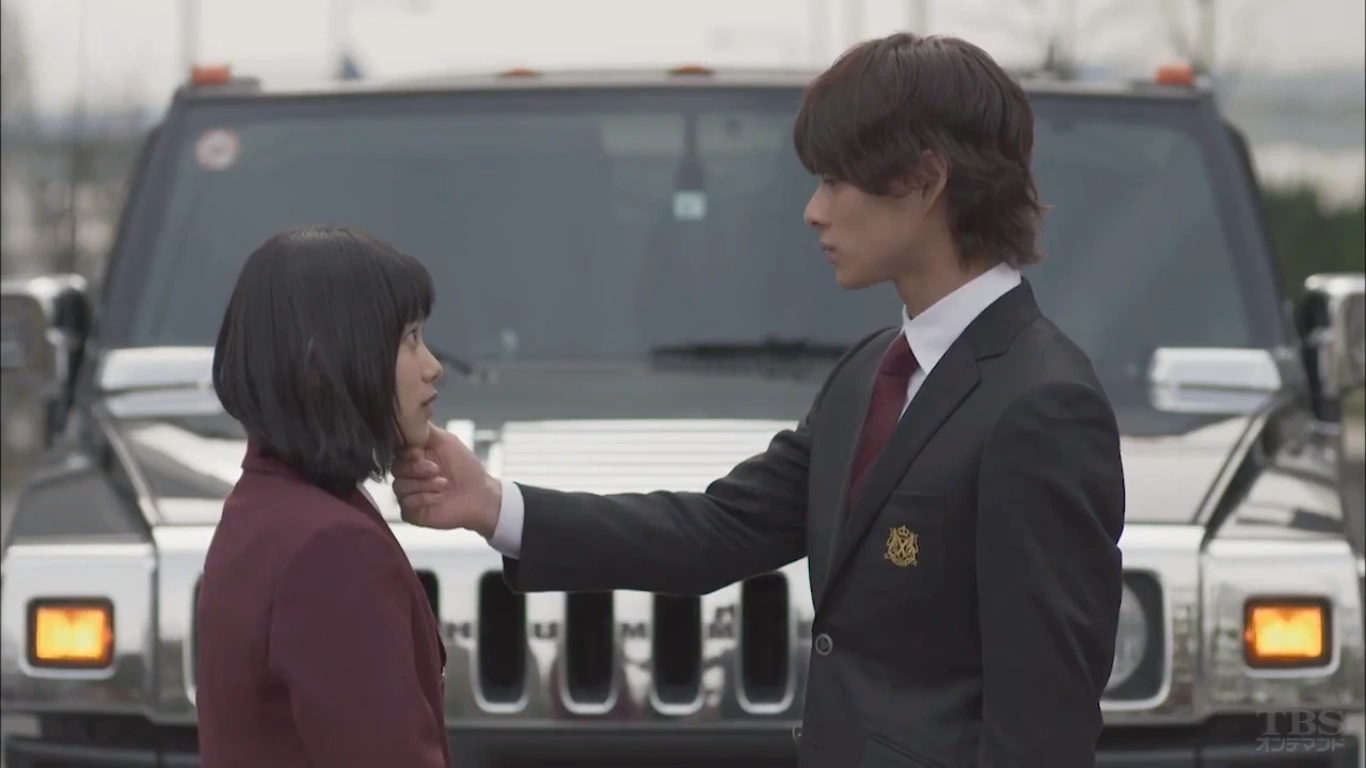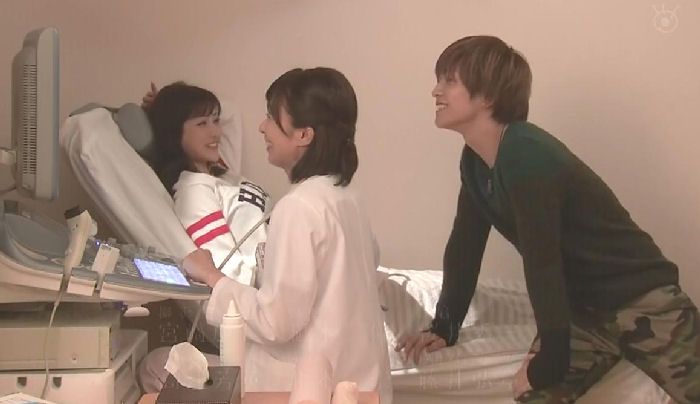South Korea especially, but also Japan, seem to have an entrenched culture of toxic masculinity. What that means is that men are pressured to fulfil impossible expectations of masculinity - in which they must be tough, violent, intelligent, athletic, and keep women under their thumb - and the roles in drama reflect this. We have the perfect male lead, prone to a little violence now and then (like, say, grabbing their object of affection by the wrist and tugging her around), who will always undeniably receive everything they could have wanted. And then there's the second male lead, who's charming qualities connote to weakness, which is why they never get the girl.
Of course, not every drama conforms to this, and I want to share a few rom-coms that I love for being aware of toxic masculinity, and occasionally overtly feminist.
 Hana Nochi Hare
Hana Nochi HareInitially, Haruto reads like the kind of protagonist that his predecessor was - this is encapsulated in the picture on the right. But Hana Nochi Hare establishes within the first half-hour that this is actually all fake. Haruto, insecure that he cannot be the perfect man his father has always pressured him to be, hides his true personality under a facade. Hana Nochi Hare is keen on exploring what weakness really is through Haruto - because it's not the kendo-champion that wins Oto's heart in the end, it's the emotional and honest Haruto.
 Strongest Deliveryman
Strongest DeliverymanThrough hero Kang-soo, Strongest Deliveryman does something a little different. Kang-soo is decidedly perfect - the titular 'Strongest Deliveryman', he can do anything and befriend anyone. Obviously, it sets an unreasonable expectation for men. But I'm glad that the drama promotes kindness as an attractive quality. How could Dan-ah not fall for someone who anticipates her needs, loves her the way she is, and ultimately stands as an equal to her. For all the dramas where the female lead falls for an asshole, at least this exists.
 Buzzer Beat
Buzzer BeatI feel like Buzzer Beat deserves props for establishing what a good boyfriend is all the way back in 2009, when men in Japanese manga were possessive or impossible to read. Naoki, from the moment he met her, always respected Riko's feelings. Although the fact that he hides important truths from her causes problems in their relationship, I would also argue that Naoki does this out of complete selflessness. It's clear she means the world to him. Buzzer Beat argues that one can be perfectly 'masculine' and considerate at the same time.
Dear Sister
This is probably the weakest choice, since at one point Hachi did pin Misaki onto a bed and forcibly kiss her - I'd argue that with some context, that's not his true nature? (It doesn't excuse it, though.) Regardless, Dear Sister presents Hachi as the perfect partner for Misaki, unlike the father of her baby who has an unhealthy dynamic with her. Hachi is exactly want Misaki needs; he unconditionally supports her. I suppose what Dear Sister says is that a couple should stand as equals, and that you should marry your best friend.
This is probably the weakest choice, since at one point Hachi did pin Misaki onto a bed and forcibly kiss her - I'd argue that with some context, that's not his true nature? (It doesn't excuse it, though.) Regardless, Dear Sister presents Hachi as the perfect partner for Misaki, unlike the father of her baby who has an unhealthy dynamic with her. Hachi is exactly want Misaki needs; he unconditionally supports her. I suppose what Dear Sister says is that a couple should stand as equals, and that you should marry your best friend.
 Nigeru wa Haji da ga Yaku ni Tatsu
Nigeru wa Haji da ga Yaku ni TatsuI love Hiramasa as a protagonist. His philosophy (roughly-translated here) is the title of the show: "Running away is embarrassing, but it can be useful." His entire arc focuses on how he tackles his inferiority complexes and fear of being vulnerable enough to love with his somewhat unorthodox wife. Hiramasa is interesting in that he doesn't fulfil any character mould - his neurotic, sensitive, quietly thoughtful personality is unlike any other, and it's one of the things that makes Nigeru wa Haji so special. It normalises weakness.
Bok-soo is Back
Is this the final form of the male lead? Kang Bok-soo is all kinds of brilliance. One of my online friends once described him as having the personality of a teenage girl, which a hilariously apt description. And this flip of gender expectations is what makes this drama so refreshing. The fact that Bok-soo cries often, adores his awesome girlfriend, and is so caring to others obviously doesn't take away from his perfection - Bok-soo's Back essentially helps my argument by showing that good leaders who are widely respected and loved can come from anywhere. They don't have to be the epitome of the standards for masculinity we've been conditioned to expect.


No comments:
Post a Comment